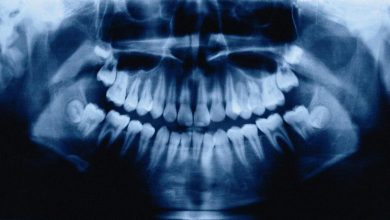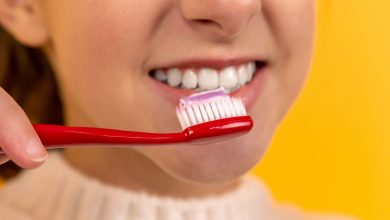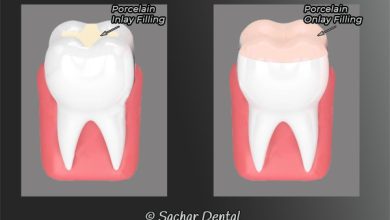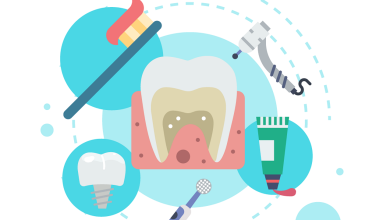Does Tooth Decay Hurt? Discover the Painful Truth About Dental Decay
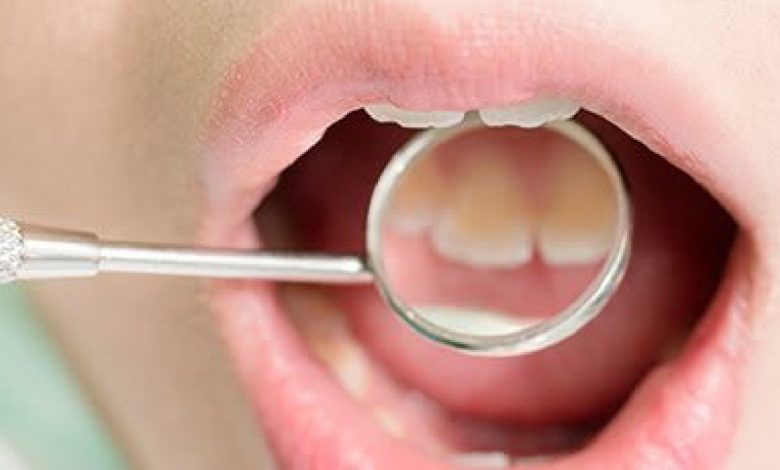
Tooth decay can cause pain and discomfort due to the erosion of tooth enamel and the exposure of sensitive nerves. Dentists recommend regular check-ups and proper oral hygiene to prevent tooth decay and reduce the risk of pain and sensitivity.
Understanding Tooth Decay: An Overview
Understanding Tooth Decay: An Overview
Tooth decay, also known as dental caries, is a common oral health issue that many people experience. It is a process that involves the gradual destruction of the outer layer of the tooth, known as enamel, due to the interaction between bacteria and food debris in the mouth. The bacteria produce acids that attack the tooth enamel, resulting in decay.
What is tooth decay?
Tooth decay is essentially the destruction of the hard tissues of the tooth, including the enamel and dentin. It begins with the formation of plaque, a sticky film that forms on the teeth, where bacteria thrive. The acids produced by these bacteria weaken the enamel, leading to the formation of cavities.
Causes of tooth decay
The primary cause of tooth decay is poor oral hygiene. Inadequate brushing and flossing allow plaque to accumulate on the teeth, facilitating bacterial growth. Additionally, a diet high in sugary and starchy foods can increase the risk of tooth decay. Frequent snacking and drinking sugary beverages can contribute to the acid attacks on the teeth.
The role of bacteria in tooth decay
Bacteria, particularly Streptococcus mutans, play a crucial role in the development of tooth decay. These bacteria metabolize sugars from the food we consume and produce acids as a byproduct. These acids gradually dissolve the minerals in the tooth enamel, creating cavities.
It is important to maintain good oral hygiene practices, including regular brushing, flossing, and visits to the dentist, to prevent tooth decay and maintain a healthy smile.
Recognizing The Signs Of Dental Decay
htmlDoes Tooth Decay Hurt?
Recognizing the Signs of Dental Decay
Do all types of tooth decay cause pain?
When it comes to tooth decay, not all types cause pain. It is possible to have tooth decay without experiencing any discomfort. However, as the decay progresses, it can cause sensitivity to hot and cold temperatures. This sensitivity is one of the early signs of tooth decay, indicating that the protective enamel is becoming compromised.
In addition to sensitivity, other early signs of tooth decay include:
- Visible holes or pits: You may notice dark or discolored spots on your teeth.
- Persistent bad breath: Bacteria that contribute to tooth decay can cause halitosis.
- Toothache: As decay reaches the inner layers of the tooth, it can lead to a constant, throbbing pain.
- Sensitivity to sweet foods: Tooth decay can cause discomfort when consuming sugary or acidic foods.
It is important to recognize these signs and seek dental care as early as possible to prevent further damage and potential pain associated with tooth decay.
Exploring The Painful Truth About Tooth Decay
Tooth decay can indeed be a painful experience. The progression of decay starts with the formation of plaque, a sticky film that builds up on teeth and harbors bacteria. Over time, if left untreated, the bacteria in plaque produce acids that attack the enamel, leading to cavities. The development of cavities can cause sensitivity and discomfort, especially when eating or drinking hot, cold, or sweet substances.
The level of pain associated with tooth decay can vary depending on several factors. The extent of decay, the location of the cavity, and individual sensitivity all play a role. In some cases, decay can lead to more severe pain, including toothaches and even abscesses. Factors such as poor oral hygiene, a diet high in sugary foods and drinks, and a lack of regular dental check-ups can contribute to the intensity of tooth decay pain.
It is crucial to take preventive measures to maintain optimal oral health. Brushing twice a day with fluoride toothpaste, flossing daily, eating a balanced diet, and scheduling regular dental visits can help prevent tooth decay and minimize any associated pain. Remember, early detection and treatment are key to addressing tooth decay effectively and avoiding unnecessary discomfort.
Strategies For Relieving Tooth Decay Pain
Tooth decay is a common dental problem that can cause varying levels of pain for individuals. Fortunately, there are strategies available to help relieve tooth decay pain.
| Over-the-counter pain relief options |
|---|
| – Topical dental analgesics, such as benzocaine, can be applied directly to the affected area to provide temporary pain relief. |
| – Nonsteroidal anti-inflammatory drugs (NSAIDs), like ibuprofen, can help reduce inflammation and alleviate tooth decay pain. |
Home remedies can also offer temporary relief for tooth decay pain. These include rinsing the mouth with warm saltwater, applying a cold compress to the affected area, and using garlic or clove oil for their natural analgesic properties.
It is important to know when to seek professional dental care for tooth decay. If the pain becomes severe, persists for more than a few days, or is accompanied by other symptoms such as swelling or fever, it is recommended to schedule an appointment with a dentist. Professional dental treatment can address the underlying cause of the tooth decay and provide long-term relief.
Preventing Tooth Decay And Minimizing Pain
htmlRegular oral hygiene practices play a crucial role in preventing tooth decay and minimizing pain. Brushing your teeth twice a day for two minutes, using a fluoride toothpaste, and flossing daily are essential habits to maintain optimal oral health.
Additionally, balanced nutrition is important for reducing the risk of tooth decay. Limiting sugar and starch intake, consuming foods rich in calcium and phosphorus, and drinking plenty of water can help protect your teeth.
However, good oral hygiene and a healthy diet are not enough on their own. Regular dental check-ups and professional cleanings are crucial to intercept any signs of tooth decay early on. Dentists can identify areas of concern, provide treatments such as dental sealants or fluoride treatments, and ensure your oral health is well-maintained.
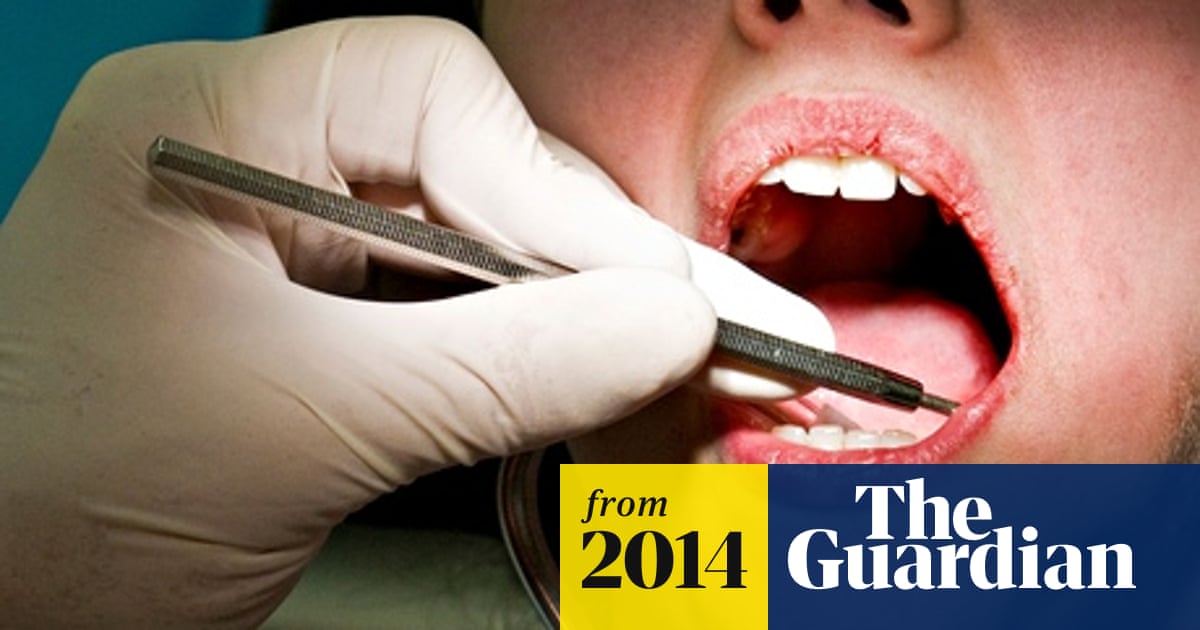
Credit: www.theguardian.com
The Link Between Tooth Decay And General Health
The Link Between Tooth Decay and General Health
The impact of tooth decay on overall health is well-documented. Poor oral health can have far-reaching consequences beyond just the mouth. Research has shown a strong connection between oral health and systemic diseases such as diabetes, heart disease, and stroke. When the mouth is neglected and tooth decay takes hold, harmful bacteria can enter the bloodstream, leading to inflammation and infection in other parts of the body. Maintaining oral health is crucial for a healthy body. Regular brushing and flossing, along with routine dental visits, can prevent tooth decay and the associated health risks. It is essential to understand that oral health is not isolated but is intertwined with our overall well-being. Taking care of our teeth and gums should be a priority for everyone.
Addressing Dental Anxiety And Pain
htmlDental anxiety is a common issue that many people face when it comes to dental procedures. The fear of pain and discomfort during treatment can be overwhelming for some individuals. However, it is important to address this fear to maintain good oral health.
Dentists are well-equipped to handle pain management during dental procedures. They use a variety of techniques to ensure that patients are comfortable throughout the process. Local anesthesia is commonly used to numb the area before treatment. Sedation dentistry, such as nitrous oxide or oral sedation, can also be an option for those with severe dental anxiety.
Promptly addressing dental issues is crucial because delaying treatment can lead to more serious problems. Tooth decay, if left untreated, can eventually cause significant pain and discomfort. By proactively seeking dental care, individuals can avoid unnecessary pain and potentially more invasive procedures.
Frequently Asked Questions For Does Tooth Decay Hurt?
Is A Tooth Decay Very Painful?
Tooth decay can be very painful due to the erosion of tooth enamel and exposure of sensitive nerves.
What Does The Beginning Of Tooth Decay Feel Like?
Tooth decay may initially feel like sensitivity to hot or cold temperatures and mild toothache. It can progress to tooth sensitivity to sweet or acidic foods and beverages. Use fluoridated toothpaste and visit a dentist regularly to prevent and treat tooth decay.
How Long Will A Decayed Tooth Last?
A decayed tooth can last for a variable period depending on factors like the extent of decay and oral hygiene. In general, it’s crucial to seek dental treatment as soon as possible to prevent further damage and potential tooth loss.
Regular checkups help assess the condition and address decay timely.
How Do You Know If Your Tooth Is Deep Decayed?
Deep decay in a tooth can be determined by symptoms like toothache, sensitivity, dark spots, and bad breath. X-rays and dental exams can confirm the extent of decay. Regular dental check-ups help detect decay early.
Conclusion
Tooth decay can indeed be painful and cause discomfort. It is essential to prioritize oral hygiene and seek professional dental care to prevent or treat tooth decay effectively. Neglecting dental health can lead to more serious complications and increase the risk of tooth loss.
By practicing good oral hygiene habits and scheduling regular dental check-ups, you can maintain a healthy smile and avoid the pain associated with tooth decay.

